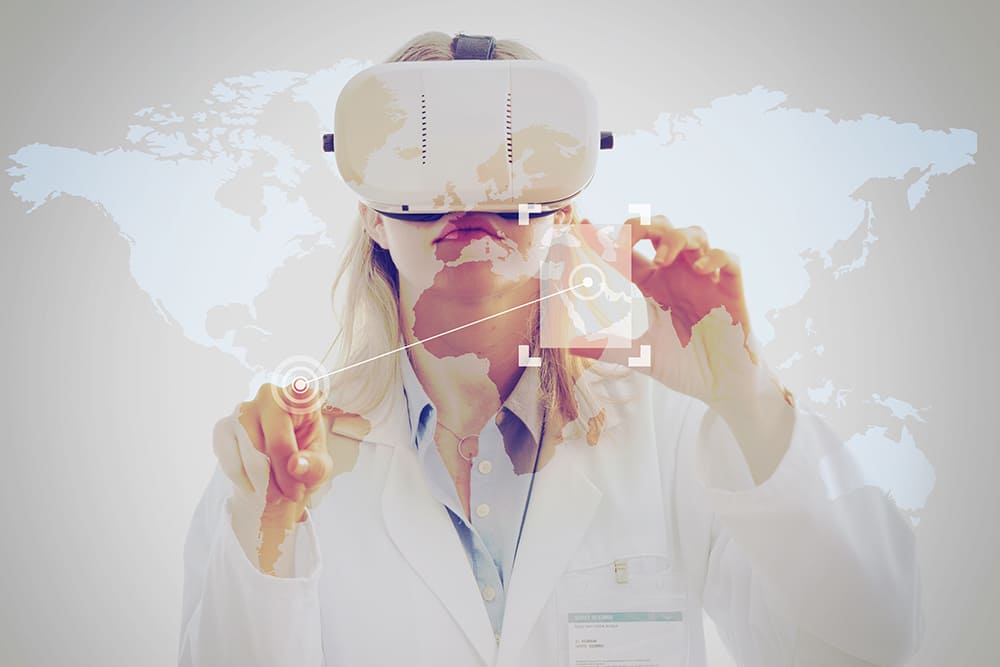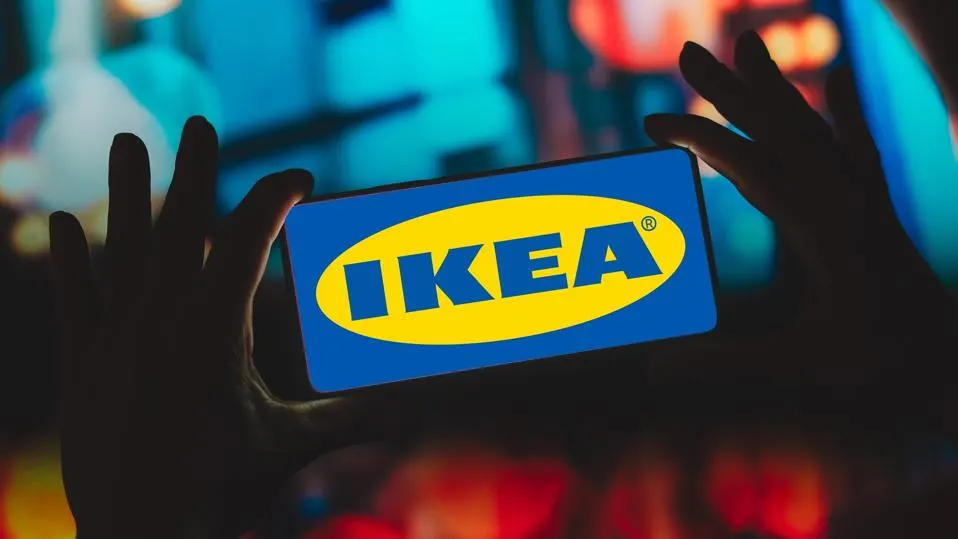Extended Reality In Healthcare: 3 Reasons The Industry Must Get Ready For AR And VR
2 July 2021
There is huge potential to apply extended reality (XR) technologies – namely, virtual reality (VR) and augmented reality (AR) – to healthcare. From self-care and wellbeing to treatment and even surgical procedures, XR is already helping to improve many aspects of healthcare. Sure, it’s early days, but the transformation is underway. And that means the healthcare industry must get ready.

Here are three reasons why the healthcare industry should embrace XR technologies.
1. XR can improve wellbeing
The positive effects of mindfulness and meditation on overall health and wellbeing are well documented. As such, a plethora of meditation apps have sprung up to help people meditate and de-stress, often using relaxing sounds and guided instructions. Now, some of these solutions are incorporating VR to make guided meditations more immersive.
Guided Meditation VR is one such app. It comes with more than 100 ready-made meditations in beautiful virtual settings, such as a beach, a secluded forest, and even the top of a mountain. Meanwhile, gentle audio instructions guide you through various breathing exercises. If you’ve struggled with meditation because you can’t tune out the real world, then putting on a VR headset and using a VR meditation app could help you literally block out everything around you. I can certainly see the benefits of this.
2. XR can help to visualize medical data more effectively
Now let’s move onto an AR example. Because it overlays digital images and information onto the real-world view, AR is ideally suited to visualizing medical information – such as overlaying anatomical data onto the patient in real life. This can help clinicians carry out procedures in a faster, more accurate way.
A simple example comes from AccuVein, the global leader in vein visualization. Here, a map of veins is overlayed onto the surface of the patient’s skin to help health professionals find veins more easily (for starting IVs and drawing blood). The technology is primarily used to help clinicians find veins that otherwise couldn’t be seen or felt, and evidence shows that vein visualization dramatically improves clinicians’ ability to find these difficult veins on the first attempt – by as much as 98 percent in pediatric cases and 96 percent with adult patients.
3. XR can improve therapeutic treatments and even surgeries
Meanwhile, VR is proving to have serious therapeutic chops. Among other things, it can be used to immerse patients in relaxing simulated environments, which can help to calm them before (or even during) treatment, reduce pain and generally improve the experience of being in a hospital or clinical setting.
In one example, a team in Brazil used VR to help children beat their fear of vaccinations. The project, called VR Vaccine, involved children watching (via a VR headset) an animated adventure story, while a nurse (who can see the story unfolding on a separate screen) synchronizes the action of cleansing the skin and administering the injection with the story. The team’s research showed that most children feared the needle itself rather than the pain they might feel, so the VR approach was devised to essentially block out and distract from the needle. The project, the brainchild of Brazilian pharmacy chain Hermes Pardini, was so successful, the company has since installed VR headsets in all of its pharmacies to help with its vaccine campaigns.
But VR isn’t just for kids. For adult patients under regional anesthetic (i.e., they aren’t “put under” for the procedure), VR has been proven to help patients stay calm and relaxed during surgery. At St George’s Hospital in London, patients undergoing procedures with regional anesthetic were given the option of using a VR headset before and during their operation, which immersed them in calming virtual landscapes. This proved incredibly effective; a staggering 100 percent of participants said wearing the headset improved their overall hospital experience, 94 percent said they felt more relaxed, and 80 percent reported feeling less pain. Patients reported feeling so immersed in the experience; they weren’t even aware of being in the operating theater.
I hope these examples show how XR can help to enhance healthcare. As well as improving patient outcomes, VR and AR can improve accessibility for health and wellbeing services. With a growing population and people generally living longer lives, healthcare services around the world are coming under increasing pressure (and that’s without the impact of COVID-19). Our healthcare systems are already struggling. Waiting times can be long, access to certain services (such as mental health services) can be limited, and, depending on where you are in the world, medical treatment can be hugely expensive. We urgently need greater adoption of technology in healthcare to alleviate these pressures – and I believe XR has a key role to play in this.
Where to go from here
If you would like to know more about , check out my articles on:
- Are Alexa And Siri Considered AI?
- How To Put AI Into A Business To Accelerate Performance?
- What Is The Impact Of Artificial Intelligence (AI) On Society?
Or browse the Artificial Intelligence & Machine Learning library to find the metrics that matter most to you.
Related Articles
Responsible AI: Why Privacy Is An Essential Element
Today, people often talk about “responsible” AI use, but what do they really mean?[...]
The Amazing Ways IKEA Is Using Generative AI
Global furniture retailer IKEA has long been at the forefront of tech-driven retail innovation.[...]
Generative AI Is Coming To Your Home Appliances
Across all industries, organizations are rapidly embracing generative AI. Among them, makers of home appliances like fridges and ovens.[...]
Generative AI And The Risk Of Inbreeding
We all understand the concept of inbreeding in human terms – where people who are too genetically similar reproduce, resulting in offspring with deformities.[...]
How Generative AI Will Change The Jobs Of HR Professionals
HR is fundamentally about managing humans – so how will the job change in a future where powerful generative AI tools are everywhere?[...]
Amazon Harnesses Generative AI For Seamless Palm Recognition Shopping Experience
Generative AI may have made headlines for its ability to write text and create art, but its uses extend beyond simply generating content.[...]
Sign up to Stay in Touch!
Bernard Marr is a world-renowned futurist, influencer and thought leader in the fields of business and technology, with a passion for using technology for the good of humanity.
He is a best-selling author of over 20 books, writes a regular column for Forbes and advises and coaches many of the world’s best-known organisations.
He has a combined following of 4 million people across his social media channels and newsletters and was ranked by LinkedIn as one of the top 5 business influencers in the world.
Bernard’s latest book is ‘Generative AI in Practice’.










Social Media